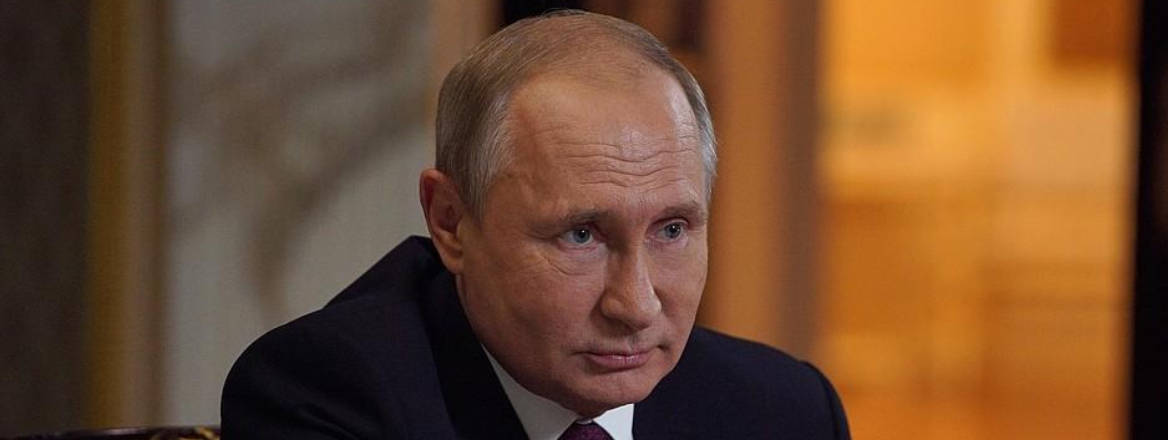Red Lines and Red Tape – How the UK Should Deal with Russia
Relations with Russia are one of the thorniest challenges for the UK’s Integrated Review. Here are a few ideas on how the UK should approach its troubled relationship with Moscow.
Relations between the UK and Russia have been extremely difficult since the mid-2000s. This is primarily due to Russia’s interventions abroad such as in Georgia in 2008, the annexation of Crimea and military intervention in eastern Ukraine in 2014, the assassination of Alexander Litvinenko in 2006 on UK soil, and the poisoning of Sergei and Yulia Skripal in 2018. This, alongside other actions such as the now-routine flights of Russian military aircraft close to the UK’s airspace, and the modernisation of the Russian military, which is seen as a threat to NATO security, all mean that Russia went from being framed as a potential business and security partner in the 2010 Strategic Defence and Security Review to a major security threat today.
The UK must assume that Russia will change neither its domestic political order nor its foreign policies in the coming years. UK policy must therefore operate in a framework that manages existing threats, prevents and counters future ones and avoids a further deterioration in relations or, worse still, a major confrontation.
Given this, a three-pronged approach to Russia should focus on maintaining deterrence through NATO; sustaining international sanctions on Russia, to demonstrate Western unity, and reassuring Western partners of our post-Brexit commitments; and enhancing UK engagement in specific areas of the post-Soviet space – including scrutinising regional political hotspots – while at the same time pursuing some limited engagement with Russia.
The UK Approach
Despite the coming and going of no less than three different prime ministers since Russia’s military intervention in Ukraine six years ago, Britain’s approach has not fundamentally shifted: it is chiefly preoccupied with strengthening deterrence and applying sanctions, in a bid to get Russia to change its behaviour. Or, as then-prime minister Theresa May put it in a November 2017 speech, the policy is to ‘engage but beware’. The approach was reinforced by then-Defence Secretary Michael Fallon’s speech to St Andrews University in February 2017, where he maintained that Russia’s military activities, including its snap exercises with large formations close to international borders at little-to-no notice, presented a serious threat to European security. Yet he also pleaded for military-to-military engagement between the UK and Russia as a means of mitigating risk.
The UK has been one of the EU’s most vocal advocates of sanctions on Russia. The EU is divided on this issue, with partners such as Hungary and Italy – which have extensive business links with Russia – pressing for the sanctions to be eased. The current consensus is unlikely to be overturned, and sanctions are likely to be routinely extended every six months. Still, the UK’s departure from the EU means that the pro-sanctions lobby will diminish. But sanctions, as well as moves to exclude Russia from political processes – such as its suspension from the G8 format in 2014 – do not appear to have altered Russia’s behaviour. Given this, the UK’s Russia approach ought to be framed by managing Russia as it is – a country that is led by Putin for the foreseeable future – rather than attempting to transform Russia into something that we might desire.
Approaching Russia
One of the main difficulties that the UK and Western allies have in engaging with Russia is that Russia has redefined its own foreign policy approach, which contradicts many of the previously agreed foundations of European security. Russia maintains that it has a ‘sphere of influence’ in countries that formerly belonged to the Soviet Union, and the right to involve itself in the political affairs of those countries. This runs counter to the fundamentals of the UK’s foreign policy, and it means that identifying a common agenda with Russia will remain an extremely challenging task.
Nevertheless, there is support across the British government for keeping doors open with Russia, even though critical intelligence-sharing on terrorism and cultural links – such as the British Council’s operations in Russia – remain restricted. Against this backdrop, the UK’s current approach could be based on five pillars:
1. Identifying areas of engagement
UK engagement with Russia is not an acceptance of or an endorsement of Russia’s foreign policy approach, or of Russia’s form of governance. At the same time, the UK should be clear about what it considers to be Russia’s legitimate interests – such as the right to conduct military exercises – and then identify what aspects of Russian foreign policy behaviour the UK and Europe consider a security threat, for example, when these exercises contain a greater number of personnel than initially stated, and are held close to international borders.
2. Anticipating regional flashpoints
There is a clear need to enhance the UK’s understanding of regional security dynamics and potential regional flashpoints. The UK should pay particular attention to developments in the Belarus–Russia bilateral relationship. There has been much discussion in the Russian government about formalising the Union State with Belarus, a political framework established in 1999, which currently means little in practice. But Belarus has become increasingly concerned about Russia’s intent to subsume Belarus’s national identity. While this does not suggest that Russia has territorial designs on Belarus, it is clear senior members of the Russian government are discussing deepening Russia’s relationship with Belarus with a degree of sincerity.
Evidently, Russia’s relationship with Belarus merits deeper examination, which means investing in UK and NATO expertise on the country, including in its domestic political systems and military capabilities. Gaining a better understanding of Russia’s foreign policy objectives in Eastern Europe, and where the Kremlin may be turning its attention, would help the UK and regional partners to better anticipate political changes, and prevent Belarus emerging as another sticking point in Russia–West relations. But the UK’s nascent moves to establish some form of security relationship with Belarus, by setting up joint military training sessions, risk prompting a more serious response from Russia. The UK could instead pursue an engagement with Belarus that focuses on gaining a better understanding of it politically, diplomatically and culturally, without provoking Russia and its concerns about NATO encroachment. The same can apply to dealing with countries such as Moldova, where Russia has significant interests and much better capabilities to advance their foreign policy agenda than the UK does.
3. Understanding Russia’s place in ‘Global Britain’
The UK government’s concept of a Global Britain should include some areas for potential UK–Russia cooperation, away from core security concerns. Russia has proven to be relatively cooperative with international partners in forums such as the Arctic Council, over issues such as climate change and search and rescue exercises. Russia will hold the chairmanship of the Arctic Council in 2021–23, in which the UK is a member. This could offer Russia the opportunity to lead on addressing security issues for increased cargo and passenger traffic along the Northern Sea Route, a sea route across the Northern Russian Arctic – any incident at sea here, such as an oil spill, would have serious implications for the UK as well. The Arctic Council is a good opportunity for the UK to showcase what it expects of Russia as an international partner in multilateral forums, such as establishing hotlines to warn of environmental disasters or ships collisions as traffic in the Arctic increases.
4. Investment in the UK’s Russia capabilities and cultural diplomacy
The UK could work to ensure that we do not treat Russian politics as a monolith based in Moscow. While Putin is certainly important, and the nexus of power remains firmly in Moscow, Russia’s territory is vast, and there are many other regional developments at play across the country. An excessive focus on developments in Moscow risks ignoring important political changes taking place in other parts of the country, such as protest votes for parties that are not the incumbent United Russia party, the potentially growing role of regional governors in influencing domestic and even foreign-policymaking, and understanding how Putin’s legacy – the National Projects, designed to boost the economy – is playing out.
The UK could expand its cultural diplomacy by increasing efforts to interact with officials, non-governmental organisations and academics beyond Moscow, to focus on the regions and younger researchers working at institutions that may be less familiar to the West.
5. Diversifying regional private sector opportunities
Ukraine, Belarus and Moldova could be effective starting points for British investment, particularly as all of these countries are attempting to diversify their economic dependence away from Russia. Opportunities could include investing in rail and road infrastructure in Ukraine, the agriculture sector in Moldova and IT in Belarus – all sectors that these countries’ governments have attempted to promote to foreign investors.
For the above approach to work, the UK must set realistic expectations for the bilateral relationship. The UK has a chance to take the lead on countering the prevailing narrative that there is only a binary choice when it comes to Russia – appeasement or containment. A managed relationship does not need to default into deeper confrontation.
The views expressed in this Commentary are the author's, and do not represent those of RUSI or any other institution.
WRITTEN BY
Emily Ferris
RUSI Senior Associate Fellow, International Security


